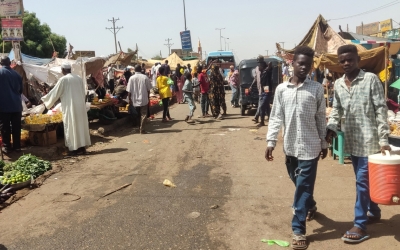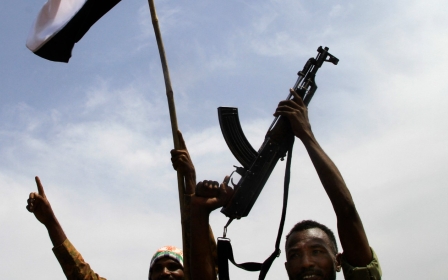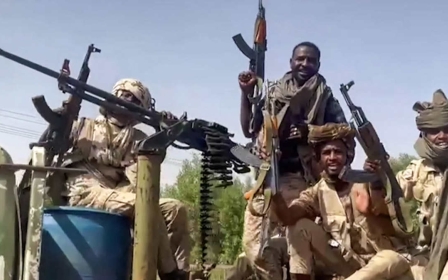Sudan's economic war intensifies as sanctions widen
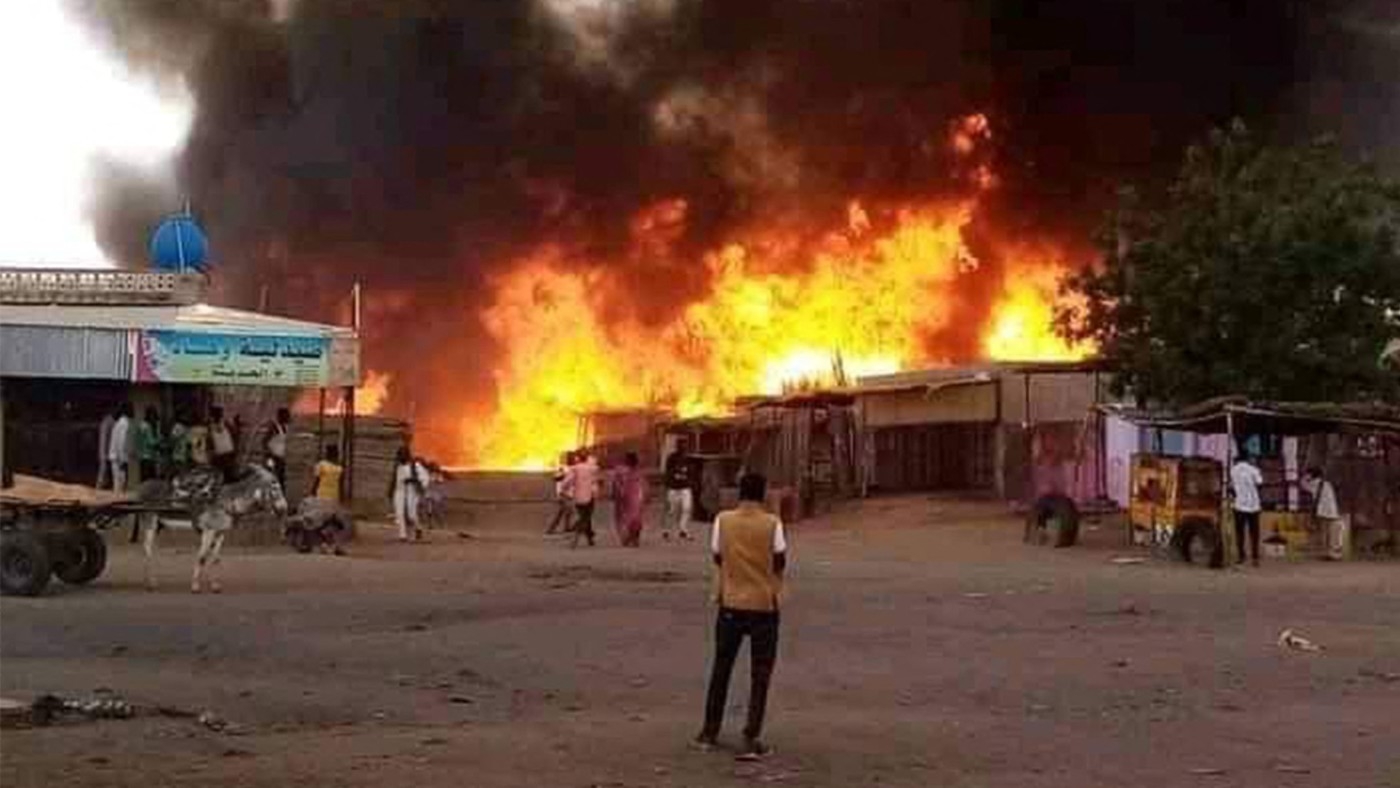
The war in Sudan has been raging for close to six months, with the Sudanese army and its partner turned enemy, the Rapid Support Forces (RSF) paramilitary, fighting in arenas far beyond the battlefield.
The conflict extends to supply lines, media confrontations, international relations, the cultural sphere and, most significantly, the economy.
Sanctions imposed by the United States on companies and individuals connected to the Sudanese Armed Forces (SAF) and the RSF have now been extended to any local, regional or international entities dealing with them.
The sanctions have also hit the Sudanese Islamic Movement (SIM), which has been accused by the US of deliberately igniting a war that began in April and has displaced more than five million people since then.
Middle East Eye recently reported on the deep ties between SIM and the army, including with leading figures from the days of former autocrat Omar al-Bashir, who was removed from power in 2019 following an uprising.
New MEE newsletter: Jerusalem Dispatch
Sign up to get the latest insights and analysis on Israel-Palestine, alongside Turkey Unpacked and other MEE newsletters
For its part, the army, which controls the governance of the country, including the finance and trade ministries as well as local administrations in the states of Sudan not mired in conflict, has used its power to impose its own sanctions on the RSF. A raft of tough measures have included the freezing of paramilitary bank accounts and attempts to stop the RSF’s import and export operations.
But for years before the war began, Mohamed Hamdan Dagalo, the RSF chief better known as Hemeti, and his family developed different external and internal sources of power and wealth to the army.
Sources familiar with the situation have told MEE the impact of domestic sanctions on the RSF could be minimal, with the paramilitary leveraging its strong ties with the United Arab Emirates and Russia, and leaning on its domination of domestic import and export markets.
Action from Central Bank
In the face of this, the Sudanese government, which is dominated by the national army, has stopped the payment of salaries to RSF soldiers and officers, banned RSF exports and imports, and frozen the assets of companies that are owned by or have direct or indirect ties to the paramilitary force.
In documents seen by MEE, the Central Bank has ordered all commercial banks in Sudan to freeze the accounts of companies or businesses belonging to the RSF.
'US sanctions by themselves are unlikely to fundamentally alter the course of the war. That’s because the US continues to operate in Sudan without any kind of strategy'
- Cameron Hudson, former US diplomat
“According to the findings of the war crimes committee formed by the sovereign council on 28 August and due to the different violations committed by the rebellion (RSF), we decided to freeze the accounts of the companies and RSF businesses listed below,” the Central Bank letter reads in part.
According to the document, around 37 companies operating in many different sectors have been sanctioned. Most of the businesses are owned by Abdelrahim Dagalo, Hemeti’s brother and the RSF’s second-in-command.
Others belong to Al-Junaid, a multi-purpose trade company that owns gold mining concessions in different parts of Sudan and is also involved in construction, agriculture and technology, among other areas.
“Anything that can be done to restrict the RSF’s access to funds is a useful thing,” Cameron Hudson, a former US diplomat, told MEE.
“Let’s remember, the RSF are mercenaries and many of them aren’t even Sudanese. They are not fighting for a national identity. If you take away their salaries and inhibit their ability to buy arms and ammunition, that will go a long way towards s0wing dissent within their ranks,” he said.
Washington applies pressure
In June, the US Treasury’s Office of Foreign Assets Control (Ofac) sanctioned four entities believed to be the main sources of revenue fuelling the war in Sudan.
Two of these, Al-Junaid and Tradive, were connected to the RSF. The other two, Defence Industries System and Sudan Master Technology, were connected to the army’s military-industrial complex.
In September, the US imposed two further rounds of sanctions on the warring parties. Abdelrahim Dagalo was targeted, and then more individuals and entities were sanctioned, including Islamic movement leader Ali Karti, who is supporting the army, and RSF-linked companies GSK Advance and Aviatrade.
According to the Ofac sanctions, the companies targeted are involved in the provision of military and other supplies, and have destabilised the country and intensified the competition between the two sides since before the war began.
The US has further accused the warring parties of undermining Sudan’s civilian government and the transitional path toward democracy.
Islamic Movement targeted
In its 28 September statement on further sanctions, the US Treasury accused Sudan’s former foreign minister Ali Karti of leading “efforts to derail Sudan’s progress towards a full democratic transition”.
The leader of the Sudanese Islamic Movement Karti was also charged - along with “other hardline Sudanese Islamists” - of “actively obstructing efforts to reach a ceasefire to end the current war between the SAF and RSF and opposing Sudanese civilians’ efforts to restore Sudan’s democratic transition”.
The movement is also charged with engaging in unfair competition with civilian businesses in order to monopolise control of Sudan’s economy.
Army officials have not responded to Middle East Eye’s requests for comment. A leading member of the Islamic movement was defiant in the face of US sanctions, telling MEE they were “useless”.
“I can’t see anything new. Aggressive US policies targeting the Islamic movement has been the norm since the time of Bashir,” the source, who asked for anonymity because he is not authorised to talk to the media, said.
“SIM has nothing to do with the eruption of the war. Like other Sudanese, we have our opinion and our stance towards the war. This is our right as Sudanese citizens and as a political party.”
RSF rejects sanctions
The RSF has also rejected the US sanctions imposed on Abdelrahim Dagalo for human rights abuses and atrocities committed during the war, describing them as selective, unfair and based on false information.
The paramilitary warned that the move would damage US attempts to mediate between the two warring sides.
“The authorities that issued the sanctions did not wait to find out who was creating strife and killing people in Darfur,” Abdelrahim Dagalo told Sky News Arabia in an interview shortly after the announcement.
“The US Treasury’s decision is not appropriate and does not concern us at all. I am ready for justice and ready for investigation. Proof is the main cause of strife, and we worked hard to prevent war between the tribes,” he said.
In its sanctions statement, Ofac accused RSF members of engaging in “acts of violence and human rights abuses, including the massacre of civilians, ethnic killings, and use of sexual violence”.
MEE has reported on allegations of rape, murder and ethnic killing perpetrated by RSF fighters and allied Arab militias in Darfur, where the local Masalit community has been particularly targeted.
According to an RSF source, Abdelrahim is now considered the paramilitary’s leader on the ground, with his brother Hemeti still recovering from an injury sustained during the early days of fighting. Abdelrahim is also believed to own various RSF investments in gold mining, construction, agriculture, petrochemicals, fuel, livestock, aviation, shipping and technology, among other sectors.
The source also said that financial tracking of the paramilitary’s operations has extended to Hemeti’s youngest brother, Algoni Dagalo, who is based in the UAE and is leading some of the RSF’s regional ventures.
Uncertain impact
When the US imposes sanctions, Ofac’s regulations “generally prohibit all dealings with US persons or within the United States… that involve any property or interests in property of blocked or designated persons”. Anyone dealing with the sanctioned person or entity is liable to be sanctioned themselves.
This is supposed to apply to financial institutions and, according to Ofac, the “prohibitions include the making of any contribution or provision of funds, goods, or services by, to, or for the benefit” of the sanctioned individual or company.
The Sentry, an investigative and policy organisation, believes that while the “strategy to end Sudan’s destructive war is broken”, the widening of sanctions will “provide the US and other mediators with the beginnings of influence over the calculations of the warring parties”.
Hudson, who is also an associate at the CSIS Africa programme, told MEE sanctions won’t be effective if they don’t come as part of a bigger strategy.
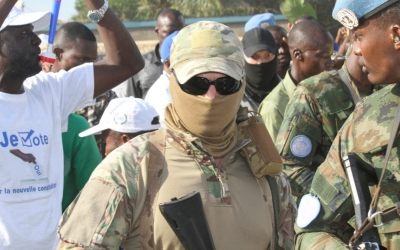
“US sanctions by themselves are unlikely to fundamentally alter the course of the war. That’s because the US continues to operate in Sudan without any kind of strategy,” he said.
“Because the US has not defined Sudan as having real strategic priority, Washington is unlikely to do the necessary things to ensure that these sanctions are having an impact, like putting pressure on the UAE and others to help enforce them. Unless they do, these sanctions will be little more than symbolic,” Hudson said.
The RSF has diverse sources of income, including from the mining sector, supplying mercenaries to the Saudi and UAE-led coalition in the Yemeni war, and trading in livestock and other exports.
Hudson said that one thing that exercises the powers that be in Washington is any probable support coming from the Russian Wagner Group to the RSF.
“It is in Washington’s interest to do what it can to punish and weaken Wagner Group operations in Africa so to the degree that they are enabling the RSF, I believe that Washington will take strong measures, which it has already done in places like Mali and Central African Republic” he said.
Hudson said he expected sanctions to be extended to other actors from the warring parties.
“We must assume that new sanctions will be coming that target the SAF and the former regime elements that will send the message that Washington is taking a more balanced approach and is not taking sides in the conflict,” he told MEE.
“The earlier round of sanctions was not just targeting the RSF but it was targeting their actions in Darfur, which is a priority for Washington. I believe that additional rounds will be more widespread.”
Middle East Eye delivers independent and unrivalled coverage and analysis of the Middle East, North Africa and beyond. To learn more about republishing this content and the associated fees, please fill out this form. More about MEE can be found here.


